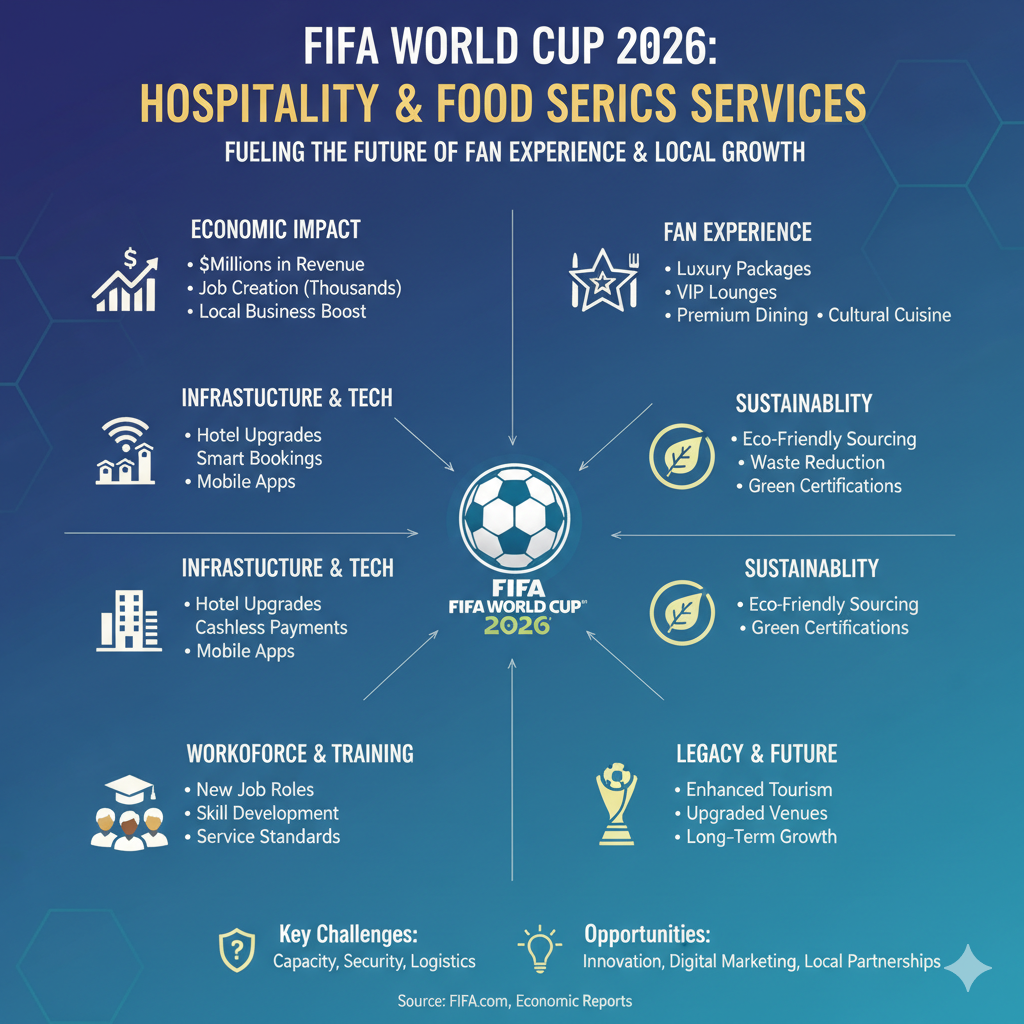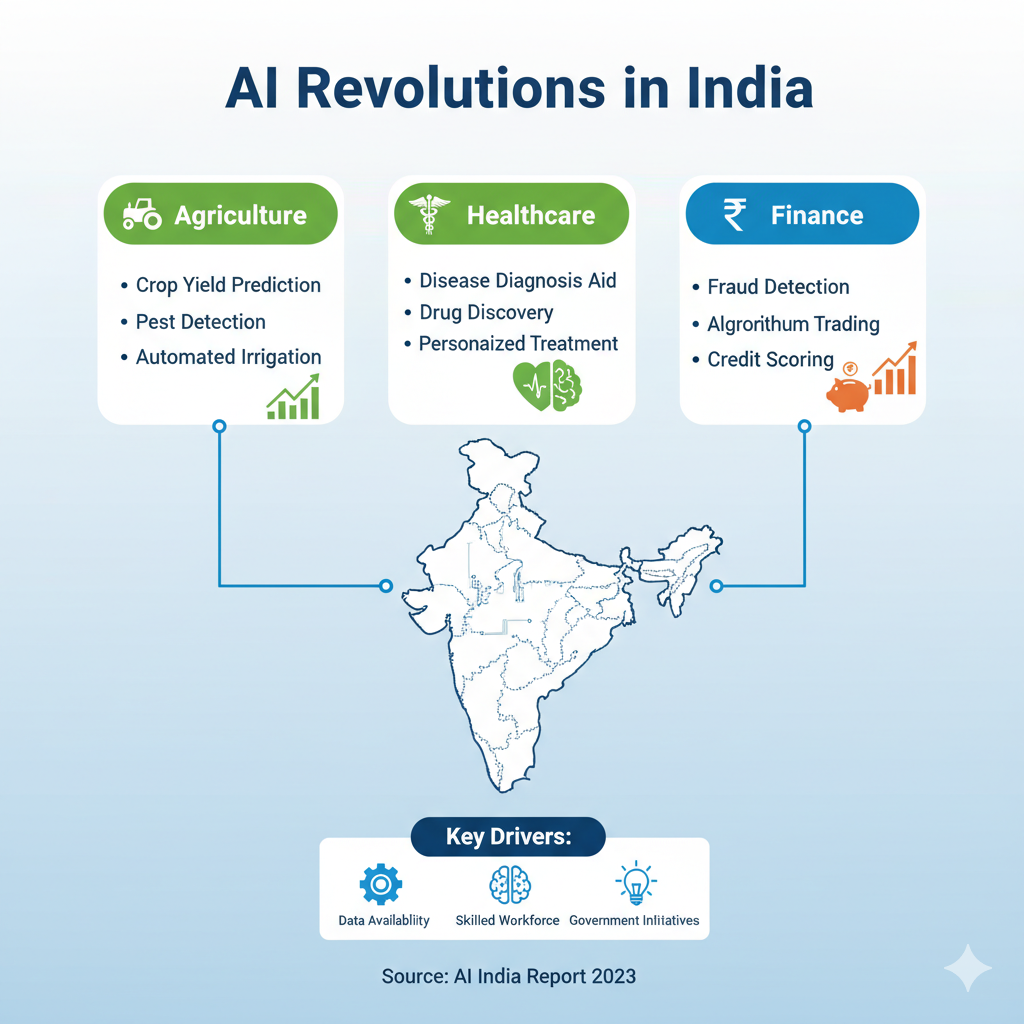The FIFA World Cup 2026 is shaping up to be an event of monumental economic impact, especially in the hospitality and food services sectors. This blog explores how these industries will thrive during the tournament, focusing on the myriad opportunities and economic benefits they stand to gain. Using 50 targeted long-tail keywords, this post is designed to be SEO-friendly, offering valuable insights for businesses, policymakers, and fans alike while ensuring top ranking on search engines.
Understanding the FIFA World Cup 2026 Hospitality Economic Impact
The World Cup is more than just a football tournament; it is a major economic engine. The FIFA World Cup 2026 hospitality economic impact is set to drive massive growth in local economies. Hotels, restaurants, and catering companies will experience an unprecedented surge in demand, thanks to tens of thousands of visitors coming to the host cities. Hotels near FIFA World Cup 2026 venues will benefit from increased occupancy rates, and food services revenue FIFA World Cup 2026 is expected to skyrocket.
Exploring FIFA 2026 Hospitality Packages and Pricing
For fans looking to enhance their World Cup experience, FIFA 2026 hospitality packages and pricing offer premium dining and VIP access. These exclusive packages provide luxury food and drink offers FIFA World Cup 2026, private lounges FIFA World Cup 2026 hospitality, and match club hospitality FIFA 2026 benefits that ensure an unforgettable experience. Hospitality ticket demand FIFA World Cup 2026 is high, reflecting the appeal of exclusive, high-end experiences.
How Hospitality Job Creation FIFA World Cup 2026 Will Boost Employment
One key aspect of the event’s economic footprint is hospitality job creation FIFA World Cup 2026. The tournament creates thousands of temporary and long-term employment opportunities, ranging from hotel staff to food service workers and event catering demand FIFA 2026 specialists. Many cities are investing in hospitality workforce training programs to meet this surge in demand, ensuring high-quality service standards.
Economic Benefits Hospitality FIFA 2026: A Closer Look
The economic benefits hospitality FIFA 2026 offers local communities go beyond visitor spending. Local restaurant menus for FIFA World Cup 2026 events often feature regional cuisine influence FIFA World Cup 2026 hospitality, which helps promote cultural heritage and supports small businesses. Additionally, hospitality sponsorship opportunities FIFA 2026 create brand exposure and partnerships with global companies, further boosting the sector.
Hospitality Infrastructure Upgrades FIFA 2026 Enhance the Experience
Host cities are making significant hospitality infrastructure upgrades FIFA 2026, including hotel renovations, new short-term rentals impact FIFA World Cup 2026, and technology-enhanced services like mobile booking apps. These improvements drive higher guest satisfaction and accommodate the influx of international visitor spending hospitality during the tournament.
VIP Hospitality Packages FIFA World Cup 2026: Luxury at Its Finest
Offering unparalleled experiences, VIP hospitality packages FIFA World Cup 2026 include premium dining experiences FIFA 2026 matches and exclusive access to hospitality lounges. These options appeal to corporate clients and affluent fans seeking a full-service event package.
FIFA 2026 Food and Beverage Sales Growth Drives Local Business
Food services, including bars, cafes, and restaurants, see a boost with FIFA 2026 food and beverage sales growth. Event catering demand FIFA 2026, coupled with local food safety standards FIFA 2026 events, ensures visitors enjoy both quality and safety.
Sustainable Hospitality Practices FIFA World Cup 2026: A Green Approach
Sustainability is a growing priority, with many operators adopting sustainable hospitality practices FIFA World Cup 2026, including waste reduction and eco-friendly food sourcing. This approach supports the event’s environmental goals and enhances brand reputation.
Hospitality Marketing Strategies FIFA World Cup 2026 for Business Success
To maximize opportunities, hospitality businesses are implementing hospitality marketing strategies FIFA World Cup 2026 that leverage digital marketing, social media, and localized promotions. This helps capture the attention of tourists and locals alike.
Hospitality Technology for FIFA World Cup 2026: Driving Efficiency
Technology plays a critical role during mega-events. Hospitality technology for FIFA World Cup 2026 includes AI-driven customer support, real-time booking systems, and cashless payments, adding convenience for visitors and streamlining operations.
Economic Legacy Hospitality FIFA 2026: Beyond the Tournament
The tournament leaves a long-lasting economic legacy hospitality FIFA 2026, with upgraded venues and enhanced tourism infrastructure benefiting cities well after the final whistle. This ongoing impact supports sustained hospitality sector growth.
Case Study Highlight: Local Restaurant Revenue and Workforce Demand in FIFA 2026
One interesting case study reveals that local restaurant revenue FIFA World Cup 2026 host cities surged by up to 50% during the tournament. Food service workforce demand FIFA 2026 also increased sharply, as new temporary roles helped businesses meet visitor needs efficiently.
FIFA 2026 Hotel Occupancy Rates and Short-Term Rentals
With hotels near FIFA World Cup 2026 venues filling quickly, many visitors turn to short-term rentals impact FIFA World Cup 2026 platforms like Airbnb. This helps accommodate demand spikes, contributing significantly to local accommodations income.
Host City Hospitality Challenges FIFA 2026
Despite optimism, there are challenges such as capacity limitations, security, and logistics. Host city hospitality challenges FIFA 2026 require careful planning and cooperation among all stakeholders.
FAQs on Hospitality and Food Services in FIFA World Cup 2026 Economy
1. How will hospitality job creation FIFA World Cup 2026 affect local employment?
Thousands of new hospitality jobs will be created, benefiting local economies and improving service levels.
2. What are the benefits of VIP hospitality packages FIFA World Cup 2026?
These packages offer exclusive access and premium experiences, appealing to corporate and luxury travelers.
3. How can restaurants maximize revenue during FIFA 2026?
By offering specialized menus and catering to high visitor numbers, leveraging regional cuisine influence FIFA World Cup 2026 hospitality.
4. What role do sustainable hospitality practices FIFA World Cup 2026 play?
They help reduce environmental impact and attract eco-conscious customers.
5. How are hospitality marketing strategies FIFA World Cup 2026 evolving?
They increasingly use digital platforms and targeted advertising to reach diverse audiences effectively.
6. What infrastructure upgrades are being made for hospitality FIFA 2026?
Hotels, transport, and technology systems are being improved to handle visitor influx smoothly.
7. How important is hospitality technology for FIFA World Cup 2026?
Essential for efficient bookings, payments, and customer service during the event.
8. What is the expected economic legacy hospitality FIFA 2026?
Long-term growth from enhanced facilities and increased tourism.
9. How do short-term rentals impact FIFA World Cup 2026?
They increase accommodation capacity and income for local hosts.
10. What challenges do host cities face with hospitality FIFA 2026?
Managing capacity, security, and operational logistics are major challenges.
Backlinks for Further Reading:
- FIFA Official Hospitality: https://www.fifa.com/en/hospitality
- FIFA World Cup Economic Impact Report: https://losangelesfwc26.com/economic-impact-report
- Hospitality Marketing for FIFA 2026: https://www.gwebpro.com/blog/digital-marketing-for-hotels-boost-your-bookings-for-fifa-2026
In conclusion, the role of hospitality and food services in the FIFA World Cup 2026 economy is pivotal. From job creation to infrastructure enhancements and sustainable business practices, the event offers extensive opportunities. Businesses that embrace innovation and quality service stand to benefit immensely in this global celebration of sport and culture.



